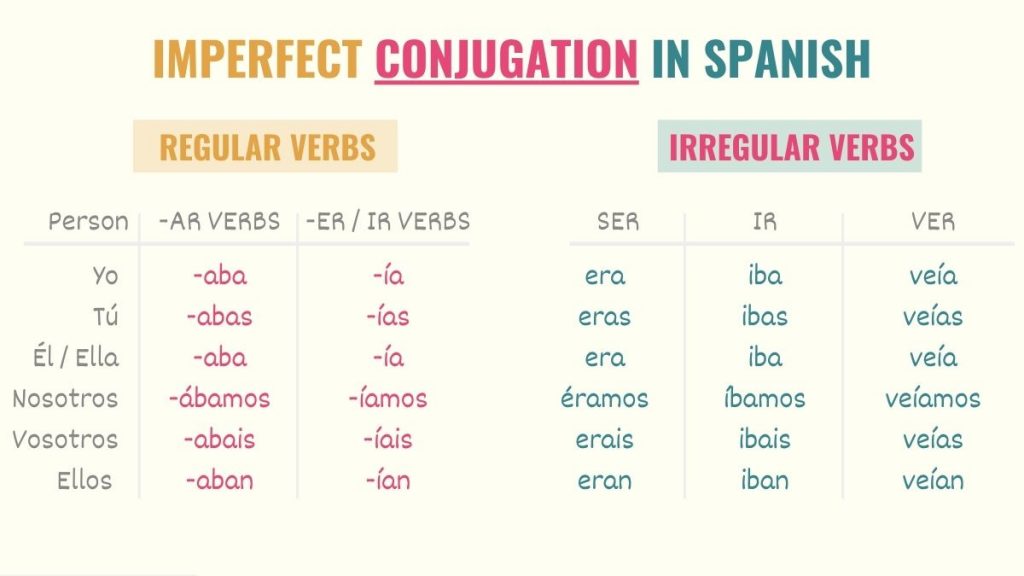

For -ir verbs, the endings are -issais, -issais, -issait, -issions, -issiez, -issaient. Because their imperfect root ends with an “ i ”, the “ nous and vous” forms of the imperfect have a double “ i ”. For -er and -re verbs, the imperfect tense endings are -ais, -ais, -ait, -ions, -iez, -aient. One more thing, note a quite weird graphical particularity with verbs ending in “- ier”. So it has an irregular stem “ ét” and use the same endings as the other verbs. Être is the only verb not following the rule, because it doesn’t have the ending “- ons” to drop in the present tense “ nous sommes, we are”. The only exception: the verb “ être, to be”.Since these verbs are irregular, they are all different in the present tense, but they still follow the same rule in the imperfect: drop the “- ons” and add the imperfect endings to the stem.ĭire, to say, in the present tense is “ nous dis ons” Note that -ais, -ais, -ait, and -aient are all pronounced alike. Listen carefully to the pronunciation of the verbs danser, finir and tre in the imparfait tense. Conjugating Verbs in the Imperfect Tense Conjugating Verbs in the Preterite. endings To the stem, add the endings -ais, -ais, -ait, -ions, -iez, and -aient. Ils/Elles finiss aient, They were finishing You will find charts to master Spanish verbs ending in IR, ER, AR and more. ar verbs -er and -ir verbs hablar comer vivir habl- aba com- a viv- a habl- abas com. Note that the first three endings and the last one ( ais, ais, ait, aient) are pronounced the same.įinir, to finish, in the present tense is “ nous finiss ons” To form the imperfect, add the following endings to the verb stem.

(In English, by contrast, the infinitive is the verb preceded by the word 'to.') The French verb with the infinitive ending removed is called the stem or radical. So it’s important to know the present tense if you want to master the imperfect.Ĭhanter, to sing, in the present tense is “ nous chant ons” The verb form that ends in -ir is called the infinitive, and -ir is the infinitive ending. The rule is the same for all verbs: you just have to drop the “- ons” ending from the present tense “ nous” form and then add the imperfect endings (- ais – ais – ait – ions – iez – aient). Let’s start with the conjugation of the imperfect tense because it’s one of the easiest in French. In this article, we’ll be going over the irregular mysteries of the Ir imperfect conjugation. 4) To describe the weather, time, age, feelings… Spanish Verbs: Ir Imperfect Conjugation Made Simple Team SpanishVIP FebruHave you ever noticed that the most common verbs in Spanish tend to be irregular Well, for better or worse that continues to be the truth today.3) With conditions beginning with “ si ” (if).2) With the expression “venir de” in the past (had just + verb).The only exception: the verb “être, to be”.


 0 kommentar(er)
0 kommentar(er)
